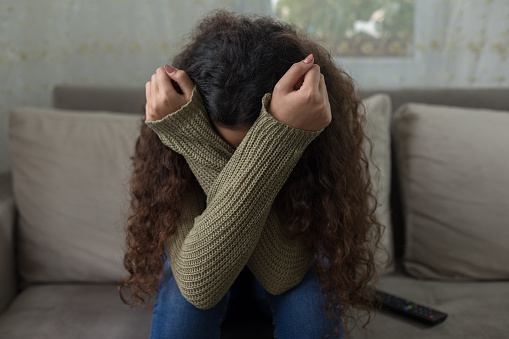Strategies on How To Manage your Anxiety
Anxiety is characterized by muscle tension and avoidance behavior in response to the anticipation of a future issue. It is an emotional reaction to an impending threat and is more connected with a fight or flight response – either staying to fight or fleeing to avoid danger.
People suffering from anxiety disorders may strive to avoid circumstances that trigger or intensify their symptoms. Job performance, schoolwork, and personal relationships might all suffer as a result. Anxiety is a common part of life. However, persons with anxiety disorders have frequent and overwhelming anxiety, fear, terror, and panic in ordinary settings. These emotions are harmful if they interfere with your quality of life and hinder you from functioning normally.
Please keep reading to know more about anxiety, its causes, symptoms, and how to deal with it.
What Causes Anxiety Disorders?
Anxiety disorders are similar to other types of mental illness. They are not the result of personal defects, character flaws, or parenting issues. However, researchers are unsure about what causes anxiety disorders. They believe a mix of variables is at work:
- Chemical imbalance: Severe or long-term stress can alter the chemical balance that regulates your mood. A lot of stress over a lengthy period of time might contribute to an anxiety condition.
- Environmental factors: A traumatic event may set off an anxiety disorder, especially in someone who has a risk of developing one.
- Heredity: Anxiety problems are more likely to run in families. Eye color, for example, may be inherited from one or both parents.
8 Common Symptoms of Anxiety Disorders Include:
The symptoms of anxiety disorders differ depending on the type. Anxiety disorder symptoms in general include:
- Feeling nervous
- Feeling helpless
- A sense of impending panic, danger, or doom
- Increased heart rate
- Hyperventilation
- Sweating
- Trembling
- Obsessively thinking about the panic trigger.
Anxiety and panic can interfere with daily tasks and be challenging to manage. They are out of proportion to the actual risk and may induce you to avoid specific locations or circumstances. While most people with anxiety disorders require psychotherapy or medication to regulate their anxiety, lifestyle adjustments and coping methods can also help.
Who is at Risk for Anxiety Disorders?
Anxiety disorders can be caused by a combination of genetic and environmental causes. You may be more vulnerable if you have or have had:
- Certain personality qualities, such as shyness or behavioral inhibition – feeling uneasy around unfamiliar people, circumstances, or settings and avoiding them.
- Early childhood or adulthood stressors or tragic events
- Anxiety or other mental health disorders run in the family.
- Certain medical conditions, such as thyroid issues and heart arrhythmias (unusual heart rhythms).
Anxiety disorders are more common among women. Researchers are still investigating why this occurs. It could be caused by women's hormones, particularly those that change during the month. The hormone testosterone may also play a role – males have more of it, which may help with anxiety. It'sIt's also possible that women are less inclined to seek treatment exacerbating their anxiety.
12 Strategies on How To Manage your Anxiety
You can use a variety of anxiety-management strategies. What works for one person may not work for another, and it may take some time to uncover the strategies that work best for you. Here are 12 strategies to help you manage your anxiety.
#1. Slow Breathing
When you're nervous, your breathing becomes shallower and faster. Slow down your breathing deliberately. Count to three as you inhale deeply, then count to three as you exhale slowly.
#2. Progressive muscle relaxation.
Find a calm place. Close your eyes and gradually tighten and relax each muscle group from your toes to your head. Hold the tension for three seconds before rapidly releasing it. This can assist in alleviating the muscle tension that can associate with anxiety.
#3. Challenge your self-talk.
Your thoughts and feelings are connected. When you're anxious, you could exaggerate how dangerous something is while also underestimating your own capacity to handle it. Instead of assuming the worst when faced with an uncertain circumstance, try to consider alternative interpretations. Consider the evidence for and against the veracity of your hypothesis.
#4. Keep physically active.
Create a schedule that will allow you to exercise most days of the week. Exercise is a highly effective stress reliever. It can lift your spirits and keep you in good health. Increase your activity levels and intensity gradually as you get going.
#5. Learn about your disorder.
Find out what might be causing your particular illness and what therapies might be appropriate for you by speaking with your healthcare professional. Invite your loved ones and friends, and solicit their assistance.
#6. Stay in the present moment.
Anxiety might cause your mind to dwell on a dismal, unrealized future. Try to return to your current location. Meditation practice can be beneficial.
#7. Take small acts of bravery.
In the short run, avoiding your nervous triggers can help, but over time, it can actually make your anxiety worse. Try taking even a modest step toward something that makes you anxious. The key to overcoming anxiety is realizing that, even if what you fear does occur, you will be able to handle it.
#8. Identify triggers.
Learn what events or acts make you stressed or anxious. Practice the tactics you devised with your mental health professional so that you are prepared to deal with anxious feelings in these situations.
#9. Healthy lifestyle.
Keeping active, eating healthy, being outside in nature, spending time with family and friends, lowering stress, and engaging in activities that you enjoy are all excellent ways to reduce anxiety and improve your wellbeing.
#10. Socialize.
Don't let worries isolate you from loved ones or activities.
#11. Keep a journal.
Keeping track of your personal life can assist you and your mental health physician in determining what is causing you to stress and what appears to make you feel better.
#12. Be kind to yourself.
Remember that you are not your anxiety. You are not weak. You are not inferior. You have a mental health condition. It'sIt's called anxiety.
Conclusion
Everyone is affected by anxiety and stress at some point in their lives. They present differently in various people, and the level of anxiety one feels it varies. Still, one thing is sure: there are strategies to handle anxiety, even if it feels out of control. Your concerns may not go away on their own, and if you do not seek treatment, they may intensify over time. Consult your doctor or a mental health professional before your anxiety develops. It is easier to treat if you seek care as soon as possible.





